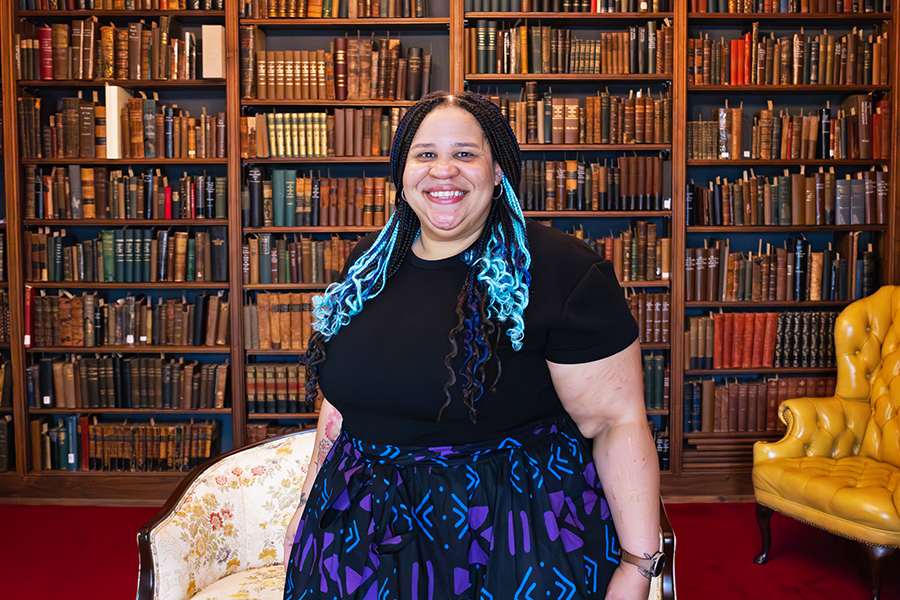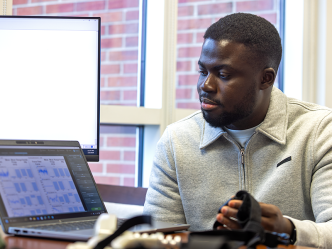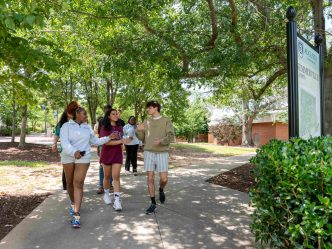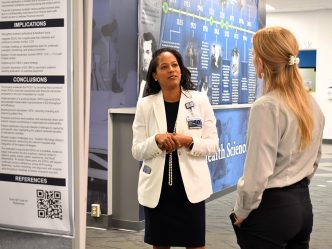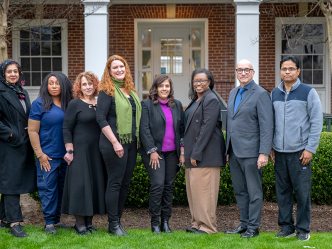When Latria Graham joined the Department of English and World Languages of Augusta University’s Katherine Reese Pamplin College of Arts, Humanities, and Social Sciences as an assistant professor, she did so as an already accomplished writer, storyteller and cultural critic dedicated to covering under-resourced and misrepresented communities in the American South.
Now she has been recognized with a major journalism award: the Heising-Simons Foundation’s American Mosaic Journalism Prize, which comes with a $100,000 cash prize.
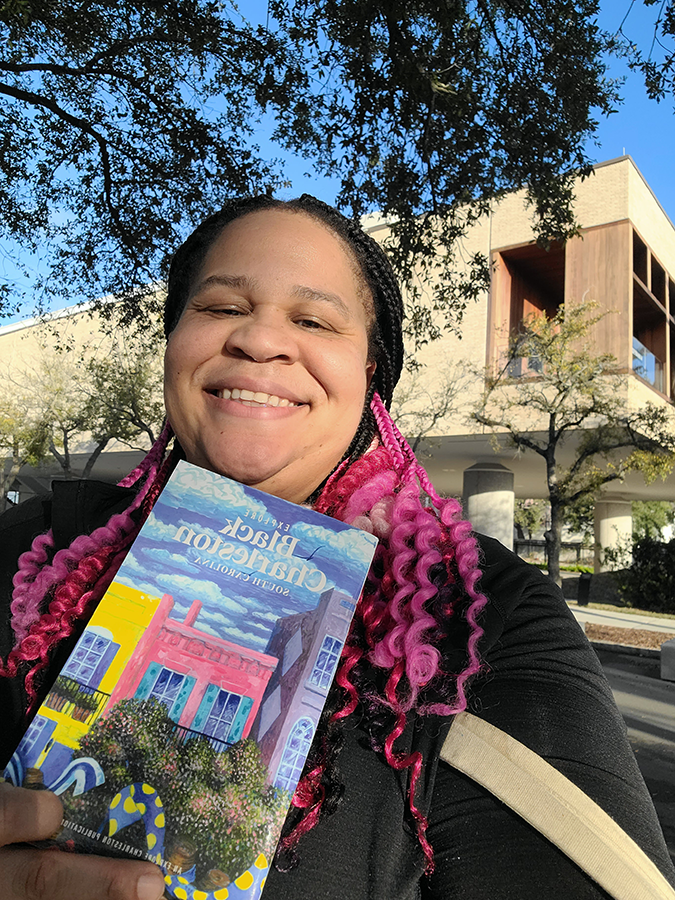
“I’m honored to receive the American Mosaic Journalism Prize and view it as a life-changing vote of confidence in my writing and my dedication to covering under-resourced and misrepresented communities in my home region of the American South,” Graham said. “The prize also means breathing room and better resources for my research and reporting trips. I have several story ideas that require traversing thousands of miles across continents.”
The award was based on confidential nominations from journalism leaders around the country. The prize is awarded for excellence in long-form, narrative or deep reporting about underrepresented and/or misrepresented groups in the United States. The award recognizes journalism’s ability to foster greater understanding and recognizes the important work of freelance journalists in the U.S. media ecosystem. A panel of 10 judges — including journalists from The Associated Press, NBC News, NPR, Columbia Journalism Review and The 19th News, among others — selected this year’s recipients.
“I am so happy to learn that Latria Graham has been awarded the American Mosaic Journalism Prize,” said Kim Davies, PhD, dean of Pamplin College. “Her writing always moves me. She makes her readers think and feel. She is an amazing writer with keen insights, and, on top of that, she is a wonderful colleague and teacher. We are so lucky she is here at Augusta University.”
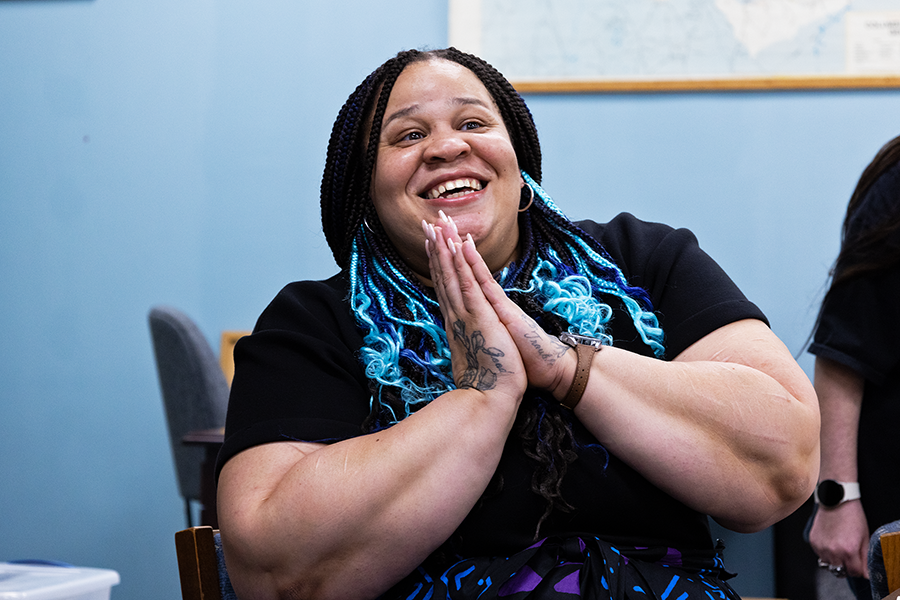
“This prestigious award is evidence of Ms. Graham’s exceptional scholarship and journalism,” said Candis Bond, PhD, interim department chair of the Department of English and World Languages. “Ms. Graham is dedicated to telling the stories of the historically marginalized and underrepresented. In her writing and in her classrooms, she works to make the silenced heard, the overlooked seen, the misrepresented understood. She shows us the power of stories to promote justice and enact social change. In her time at Augusta University, she has made a profound impact on the lives of her students and colleagues. Augusta University is a better place because of Ms. Graham.”
Graham joined Pamplin College full time in the fall of 2024 after taking part in a visiting scholars program. Graham’s stories have appeared in The New York Times, The Guardian and Garden & Gun Magazine, among other outlets. Her April/May 2024 piece for Garden & Gun, “Masters of the green: the Black caddies of Augusta National,” highlights the remarkable legacy of Augusta National Golf Club’s all-Black caddie corps, whose members guided golf legends to victory, while their own excellence was overlooked for generations.
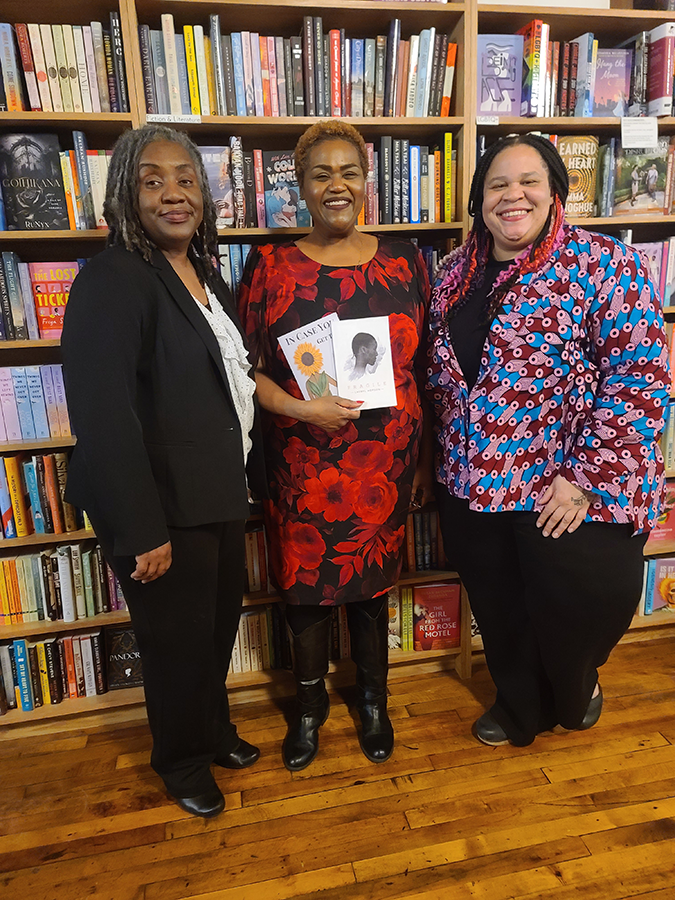
Williams, PhD, and author Cheryl
Hopson. [Latria Graham]
“I’ve made a lifelong commitment to this type of storytelling because I have witnessed those around me lose everything, including people they loved, and there were two things that got them through: their faith — in their community and by extension humanity — and their ability to tell stories about what was,” Graham said. “I believe understanding the past is key to understanding the type of future that can flourish when communities rebuild. My writing has always focused on the tenuous balance between economic opportunity and environmental peril. As I write this, our region is recovering from the devastation of Hurricane Helene. The climate catastrophes are here, and all of these events will leave all of us forever changed — not just on a personal level, but a policy one, too.”
A fifth-generation farmer from Spartanburg, South Carolina, Graham’s forthcoming book, “Uneven Ground: A Memoir of a Family, a Land, and a Culture in Peril,” chronicles her attempt to preserve her family’s century-old farm and sense of rootedness. It will soon be published by Mariner, a division of HarperCollins.
“I think good storytelling forces the audience to look — really look with immense clarity — at what our laws and policies are doing to us and the way that we’re treating one another,” Graham said. “Stories are how we survive. A careful reporter can provide perspective, cultivate empathy and provide light for readers that need it.”
 Augusta University
Augusta University
